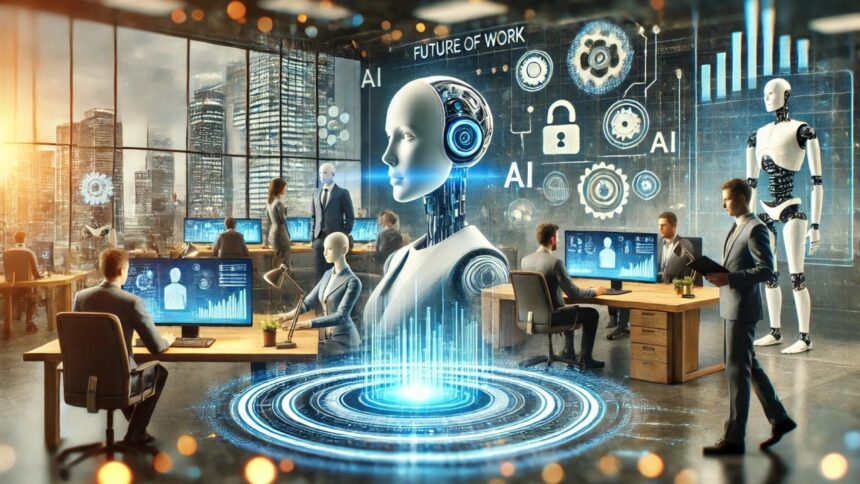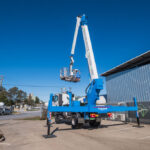Introduction
The way we work is changing faster than ever. Artificial Intelligence is no longer just a tool for automating repetitive tasks it is fundamentally reshaping how teams operate, how skills are valued, and how businesses grow. Organizations are increasingly looking to integrate AI into every part of their operations, from strategic decision-making to everyday workflows. To do this effectively, many companies are turning to experts, including AI consultant professionals, to guide them through the complex process of AI adoption. These consultants provide insights into technology deployment, workforce optimization, and best practices, helping businesses unlock the full potential of AI while staying competitive in a rapidly evolving market.
From Traditional Teams to AI-Augmented Teams
Teams today are no longer purely human-driven. Instead, organizations are adopting hybrid structures where employees work alongside AI-powered tools. These tools act as digital assistants, handling repetitive tasks, analyzing large datasets, and providing actionable insights. By offloading routine work to AI, employees can focus on innovation, strategic thinking, and problem-solving. In HR departments, this trend is particularly visible, as AI-driven systems streamline processes such as candidate evaluation and performance tracking. By incorporating AI thoughtfully, companies create a workplace where humans and machines complement each other, improving both productivity and engagement.
Why AI-Driven Hiring is the Future
Traditional hiring processes are often slow, inconsistent, and prone to bias. Companies are now leveraging AI hiring solutions to make recruitment more efficient and accurate. AI-driven hiring platforms can screen candidates based on skills, experience, and cultural fit, helping HR teams identify top talent quickly. By analyzing data points that humans might overlook, AI hiring tools improve the quality of hires while reducing the time and cost associated with recruitment. Additionally, AI systems help ensure more objective decision-making, minimizing unconscious bias and supporting diverse, high-performing teams.
The Role of AI Hiring Software: From Screening to Selection
AI hiring software is transforming recruitment by automating key steps, from resume screening to interview scheduling. Modern platforms can assess technical skills, evaluate competencies, and even rank candidates based on predictive performance models. For HR professionals, this means less time spent on manual tasks and more focus on strategic decisions such as cultural alignment and leadership potential. By integrating AI hiring software into their recruitment workflow, companies are able to scale their hiring processes efficiently while maintaining high-quality standards. These tools are increasingly becoming a cornerstone of talent strategy in organizations that want to grow intelligently and sustainably.
New Skills Required in the AI-Driven Workplace
As AI continues to reshape business operations, the skills valued in the workplace are evolving. Routine task execution is becoming less important, while analytical thinking, creativity, adaptability, and digital literacy are in high demand. Organizations often rely on an AI consultant to identify skill gaps and design training programs that prepare employees for AI-enhanced roles. New hybrid positions are emerging that require both human judgment and AI literacy, including AI Product Managers, Prompt Engineers, and Automation Strategists. Success in the future workplace depends on the ability to collaborate effectively with AI systems and continuously develop skills that complement automated processes.
How AI Consultants Drive Business Transformation
In today’s rapidly evolving technological landscape, many companies are realizing that successfully integrating AI into their operations requires more than just purchasing software—it requires strategic guidance. This is where an AI consultant becomes invaluable. These professionals work closely with organizations to understand their business objectives, analyze existing workflows, and identify areas where AI can deliver the most impact. By doing so, they ensure that AI adoption aligns not just with operational efficiency, but with long-term strategic goals.
Beyond advising on strategy, an AI consultant also plays a hands-on role in implementing AI tools, including AI hiring software. For example, they can help HR teams deploy AI-driven platforms that automate candidate screening, skill assessments, and predictive hiring analytics. This reduces manual workload, shortens recruitment cycles, and improves the quality of hires. Furthermore, AI consultants ensure that these implementations are ethical and compliant, minimizing bias in decision-making and maintaining transparency throughout the process. By leveraging the expertise of an AI consultant, organizations can accelerate digital transformation, optimize workflows, and make data-driven decisions with confidence, positioning themselves for sustainable growth in an AI-powered future.
Human + Machine Collaboration: The Synergy Effect
The adoption of AI in the workplace is not about replacing human employees; it is about enhancing their capabilities and unlocking new potential. AI systems excel at processing large volumes of data quickly, identifying patterns, and automating repetitive tasks with high accuracy. Humans, on the other hand, contribute creativity, critical judgment, emotional intelligence, and strategic thinking qualities that AI alone cannot replicate. When these strengths are combined, organizations achieve a powerful synergy that boosts efficiency and innovation.
In practical terms, this collaboration is evident in recruitment and talent management. AI hiring software can analyze thousands of resumes, evaluate skills, and rank candidates, but it is the human recruiter who interprets the results, evaluates cultural fit, and makes nuanced decisions about leadership potential. Similarly, in operational workflows, AI can provide predictive insights, while humans decide on the strategic actions to take based on these insights. This partnership allows companies to innovate faster, respond to market changes more effectively, and create a more engaged workforce. Rather than seeing AI as a replacement, businesses that embrace human-machine collaboration transform it into a multiplier for human potential, driving productivity, creativity, and sustainable business growth.
AI’s Impact on Business Growth: Efficiency and Scalability
Integrating AI into business operations has a measurable effect on growth. Companies using AI hiring software experience faster recruitment cycles, lower costs, and higher-quality hires, which improves overall team performance. Beyond hiring, AI optimizes operations, provides actionable insights, and uncovers new opportunities for market expansion. Organizations leveraging AI effectively can scale more efficiently, respond to market changes swiftly, and innovate confidently. When implemented strategically, AI enables businesses to become more agile, competitive, and resilient, laying the foundation for long-term success.
Preparing for the AI-Driven Future
Businesses that want to thrive in an AI-driven world must start preparing now. Investing in employee training and AI literacy is essential, as is fostering a culture that embraces continuous learning and adaptability. Partnering with an AI consultant ensures that AI adoption aligns with organizational goals, while integrating AI hiring and AI hiring software helps modernize recruitment and talent management. Ethical AI practices, transparency, and bias mitigation are equally important. Companies that adopt AI thoughtfully and strategically can position themselves as leaders, leveraging technology not just to survive but to drive sustainable growth in the evolving world of work.


